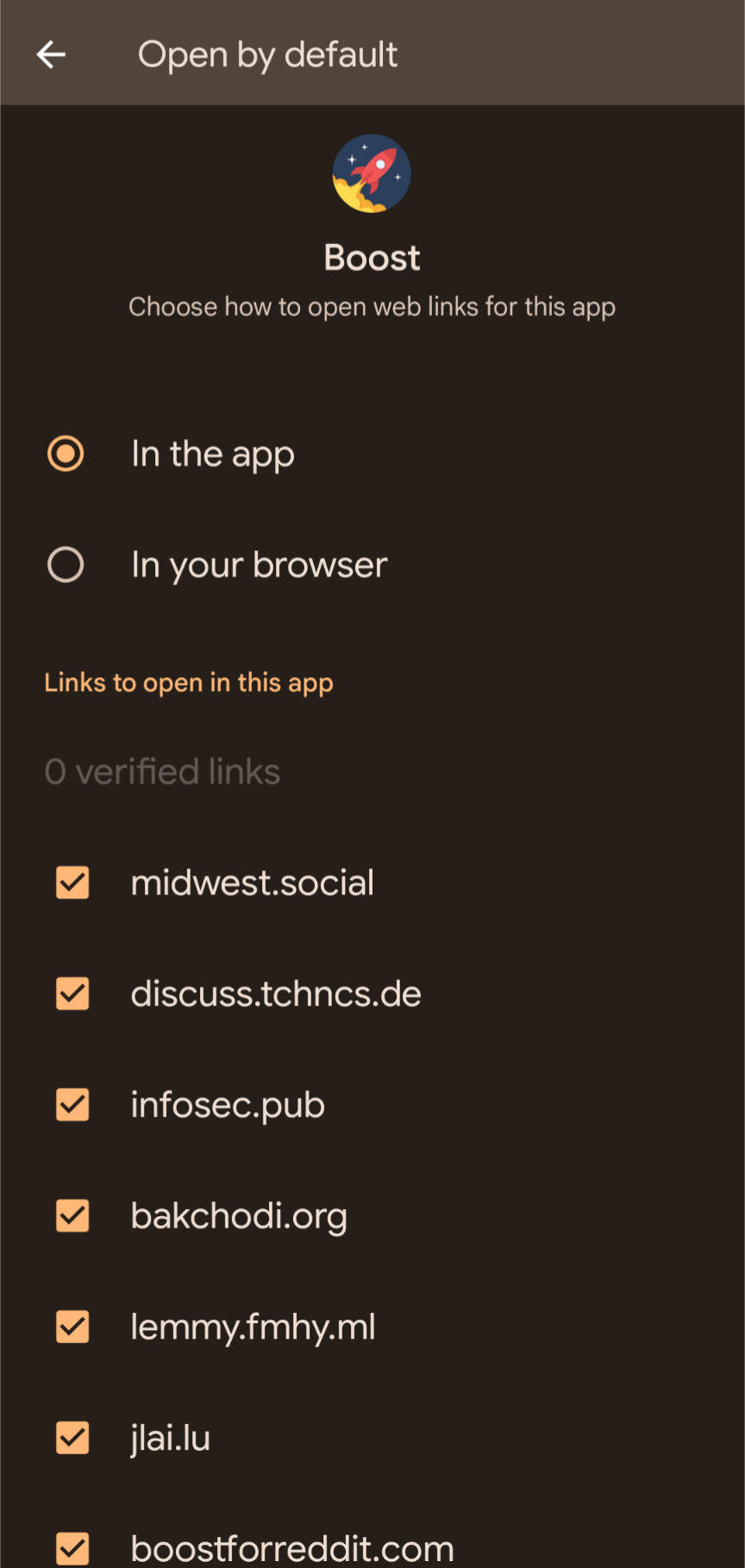Since we are in the fediverse, I think it would be convenient to have a fediverse-wide resolvable fediverse URI scheme, that would look like so:
fediverse://
edit: Found a relevant FEP: https://codeberg.org/fediverse/fep/src/branch/main/fep/07d7/fep-07d7.md


By “claiming addresses” you mean domains? Or what?
You mean because the address in the fediverse scheme would be domain-independent? How in the world would that work? How would it know what to connect to? You’re proposing something completely different than ActivityPub at least.
On android, when you click a link that has an association with an app you get the choice to open the app instead of being redirected to the website. Right now every app developer for the fediverse needs to maintain a list of instances for this.
If you had a protocol instead you would only need to specify the one.
Right now every app developer for the fediverse needs to maintain a list of instances for this.
If you had a protocol instead you would only need to specify the one.
Look up what a URL schema is. Examples include
https(obviously handled by your browser),ftp,mailto,ms-wordetc. Themailtoone is most well-known for letting you choose between in-browser (Gmail etc.) and native (Thunderbird, Outlook etc.) options on desktop and mobile. There does not need to be a formal protocol and port, it’s just a way to signal support for a kind of content via URL.Okay, sure you could have apps open links to external posts, as the app would know that it would need to fetch the post by searching the URL (switched with a HTTPS scheme). I can kinda see the point of that. I’m not sure the fediverse and ActivityPub is really super mature enough for that yet. For instance you can’t fetch Mastodon posts from Lemmy.
Having a standard URL scheme would precisely help us develop ActivityPub clients and get rid of application-specific servers.
Doesn’t change the fact that Lemmy does not support posts outside of communities.